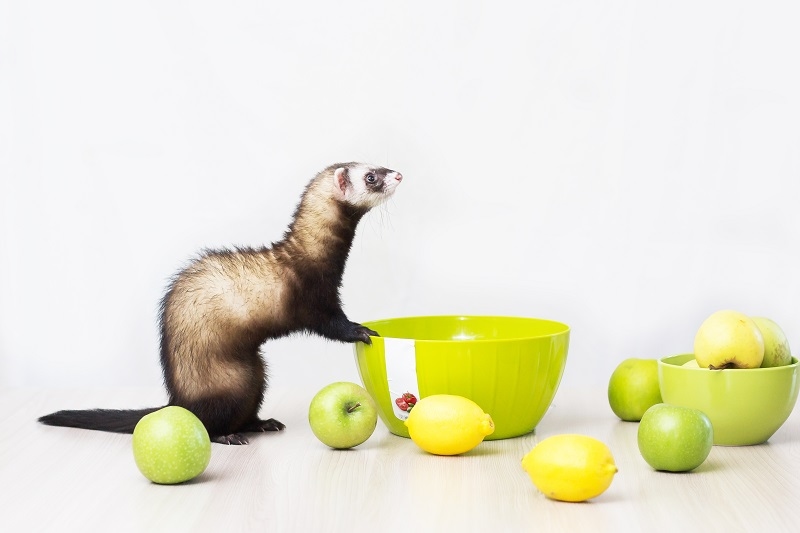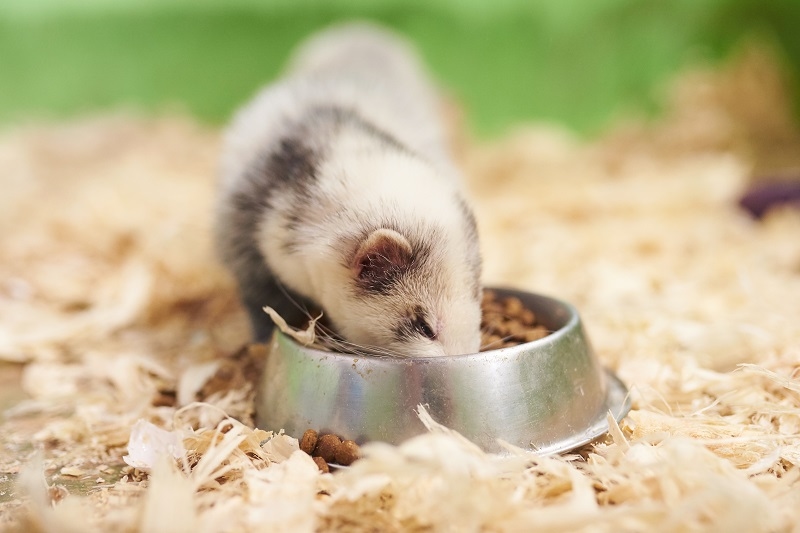
Owning ferrets can be a happy and satisfying endeavor, and it is not that their dietary needs are less complicated. In their nature as strict meat-eaters, ferrets rely on a diet that is highly proteinaceous and fatty of animal origin. At present, a lot of pet owners are turning to raw feeding as a more natural and effective way to meet their pets needs.
This blog covers the ferret raw diet guide to help you keep the animal healthy and lively.
Being carnivores by nature, the ferrets are. In their natural habitat, they feed on small animals, thus their digestive system is compatible with meat, fat, and bones. Foods of plant origin or a diet rich in carbohydrates are not only unsuitable for them, but they can also cause various ailments.
The intention of a ferret’s meat-based diet is to provide what is closest to their natural diet. Raw meat diet ferrets, such as chicken, rabbit, or turkey, can be used along with organs and bone in small amounts. Due to the fact that ferrets have short digestive tracts, they require food rich in nutrients that can be digested quickly.
A raw diet change can come with various health advantages for your pet. Some of them are presented below:
By taking a ferret raw diet guide as a reference, the pet will have not only a natural way of consuming food, but he will also have a longer and more vigorous life.
Feeding animals a ferret-balanced diet means more than just giving them meat in its raw form. In order to stay fit, ferrets need a range of foods that include muscle meats, organs, and bones. The good balance can be like this:
Never feed your ferret only muscle meat as it may lead to nutritional deficiencies. The key to healthiness in the long run is balance just like in humans.
A good ferret feeding schedule is a must, as ferrets are high-metabolism animals with small stomachs. They should be given meals frequently throughout the day. The following is a basic plan:
Make sure that fresh water is always at their disposal along with their meals. If you are a beginner with raw feeding, you are allowed to start with small amounts of feed at set times until your ferret gets used to it.

Raw feeding is believed to be a costly affair by most people. However, it is possible to make it affordable if good planning is done. Below is a list of affordable ferret diet options:
In fact, with some work, you can feed your ferret with excellent food and still stay within your budget.
The switch to raw food from kibble is not a walk in the park. Some ferrets can be somewhat quick in accepting a new diet, whereas others may be a little difficult. To help your ferret adapt more easily:
Once they are totally converted, you will be able to see them get more energetic and healthier overall.
Manual handling of raw meat must be carried out with certain safety provisions in place to protect both the handler and the ferret:
The ferret will be safe during meals if you follow these tips.
Even if you are well-meaning, some slip-ups may lead to a decline in your ferret's well-being. Here are a few mistakes to look out for:
If you do not make these mistakes, you will be correctly guided concerning the ferret raw diet.
The ferret that benefits from raw food shows several good signs:
All these symptoms are an indication of the pet thriving on the ferret carnivore diet and consequently getting ferret balanced nutrition.
A great contribution to your ferret's health and joy is feeding it properly. With correct planning, a raw meat diet for ferrets can not only be safe and efficient but also be moderate in price.
Any time you utilize a reliable feeding schedule for your little dog and try out economical ferret meal plans, you will have no trouble providing your little companion with everything he needs for him to be kept in good shape and made to have fun for years to come.
This content was created by AI